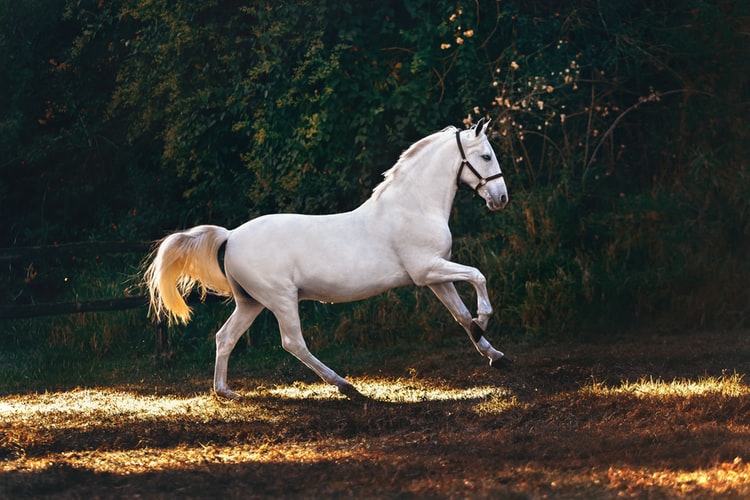How equine flu is impacting the world of horse racing
Horse racing has hit the news this month after its biggest health and financial crisis in 18 years, after the industry closed down after an outbreak of equine flu. The sport’s regulatory authority, the British Horseracing Authority (BHA), announced a shutdown of racing fixtures and a lockdown of racing stables – although this temporary halt has now been lifted, the impact of the flu concerns will impact the sport for months to come. What does the flu mean for horse racing?
Equine flu symptoms are not particularly serious (it’s like human flu – it knocks you back for a bit, but you’ll soon recover if you rest up), although it can potentially be highly-damaging to a horse’s respiratory system. However, it is highly contagious, and it can take up to five days before a horse shows any symptoms, hence the need for a shutdown of the industry and the lockdown of 174 stables. Vets recommend that horses with the flu should rest and not begin any strenuous exercise for at least two weeks after symptoms have disappeared.
The virus is endemic in the UK, and vaccination has been compulsory since 1981
For the industry, this news could not have come at a worse time. It is less than five weeks before the start of this year’s Cheltenham Festival, with Aintree and the Grand National taking place at the start of April. Containing the outbreak should hopefully ensure that the high-profile events can go ahead, but a resurgence of the illness may place them under threat – the horses need to be in peak condition in order to win.
There is form for illness disrupting horse racing. In 2001, the UK was hit by an outbreak of foot-and-mouth disease, and so Cheltenham had to be cancelled – this equated to a loss of £30 million for the local economy, with transport, restaurants, entertainment and hotels all benefitting from the festival. A further £100 million loss hit the bookies (some of this money makes its way back into the industry via the betting levy), and the Grand National was only allowed to take place under heavy biosecurity measures. Cheltenham this year is expected to be worth around £200 million (the industry is worth £3.5 billion to the UK economy each year in total), so there are a lot of people very keen that the event goes ahead – after football, racing is he second-highest attended sport in the UK.
Australia too was hit by equine flu in August 2007, which shut down racing for six months (the country was not declared free of the disease until 10 months later). At the beginning, containment and treatment costs were £273,000 a day, and wider ‘associated income’ losses reaching £2.5 million each day. The BHA have been very keen to allay fears that the situation will be similar, noting that Australian thoroughbreds are not vaccinated against the illness, whereas British horses are (the virus is endemic in the UK, and vaccination has been compulsory since 1981).
Key personnel in the industry have mixed feelings about the shutdown. Champion jockey Sir AP McCoy said that the BHA has “handled it very well and given every chance of clearing it up as soon as possible” – for many figures, the short-term loss is important to avoid long-term problems. He notes, however, that “it’s all right for those who have got a few quid but there will be jockeys with young families who will find it tough.”
There has also been some general criticism over the need for a shutdown at all
Most jockeys rely on race riding fees and prize money as their sole source of income, with average earnings of around £30,000, so an extended period of no racing could cause some financial issues. Paul Struthers, the chief executive of the Professional Jockeys’ Association, explains that “any period with no racing means those jockeys, their agents and valets will not be earning.” There has also been some general criticism over the need for a shutdown at all – despite comparisons to the 2001 situation, foot-and-mouth is a markedly more serious problem than equine flu. Some vets have commented that “it’s not Ebola”, and leading trainer Nigel Twiston-Davies termed it a “massive overreaction”.
The races are back open, but the situation is not fully resolved by any stretch of the imagination. The details of what restrictions are to be placed on stables where the risk of exposure is considered greater (or even what the criteria will be to judge the risk) are yet to be announced. Training plans will also be impacted – the six-month vaccination requirement means trainers will likely give their horses a day or two off anyhow, and the flu will not allow an outing roughly a month before Cheltenham (which is regarded by many trainers as the idea final warm-up for their horses). And horses continue to be tested – if the strain is found in a potential favourite, it could entirely reshape the outcome of any races yet to come.
As we move closer to horse racing season, many people are waiting patiently to see if this flu outbreak will lead to a longer period of malaise for the sport.

Comments